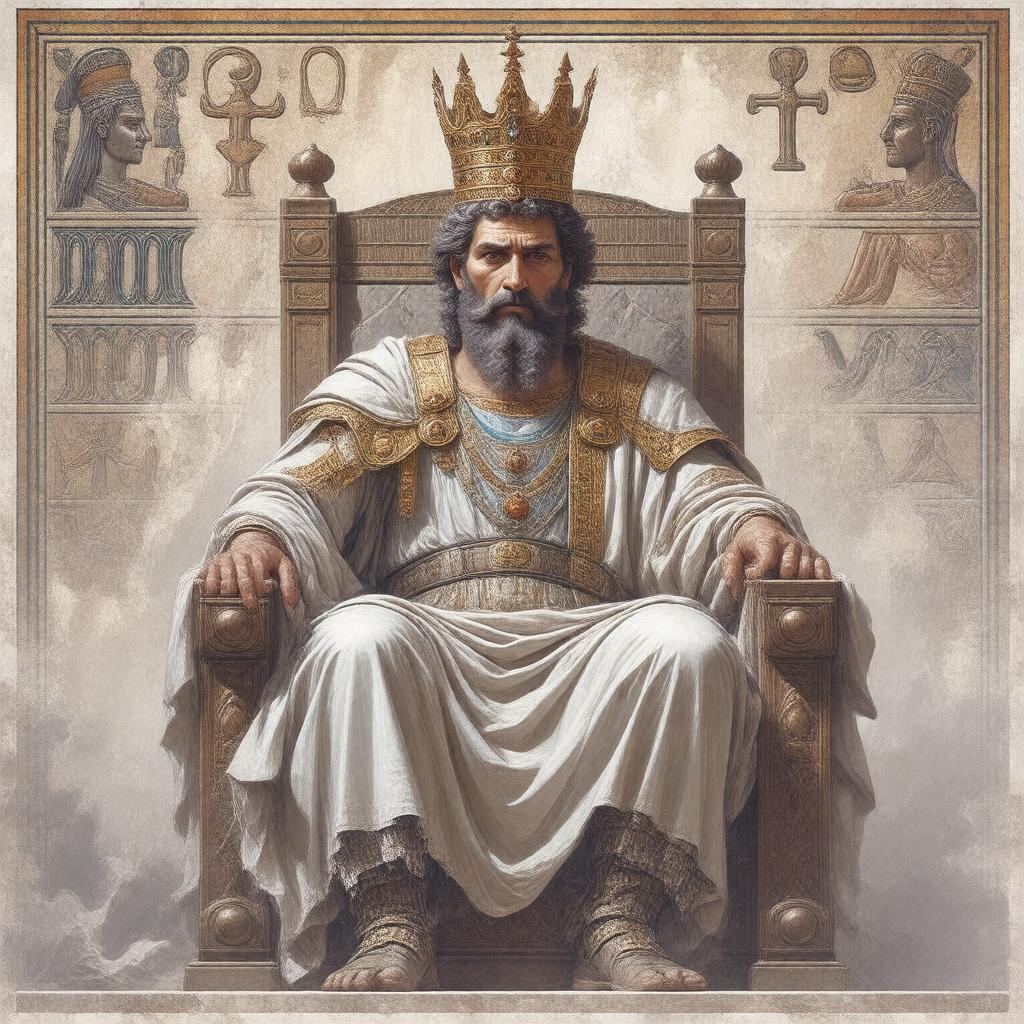Prompt
"Generate an image of King Ahaz, a 8th-century BCE Hebrew king, sitting on his throne, wearing a crown and royal robes, with a mixture of anxiety and determination on his face, surrounded by Assyrian and Judahite symbols, in a realistic and detailed style, reflecting his tumultuous reign and complex relationships with neighboring kingdoms."

